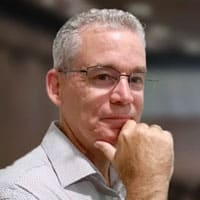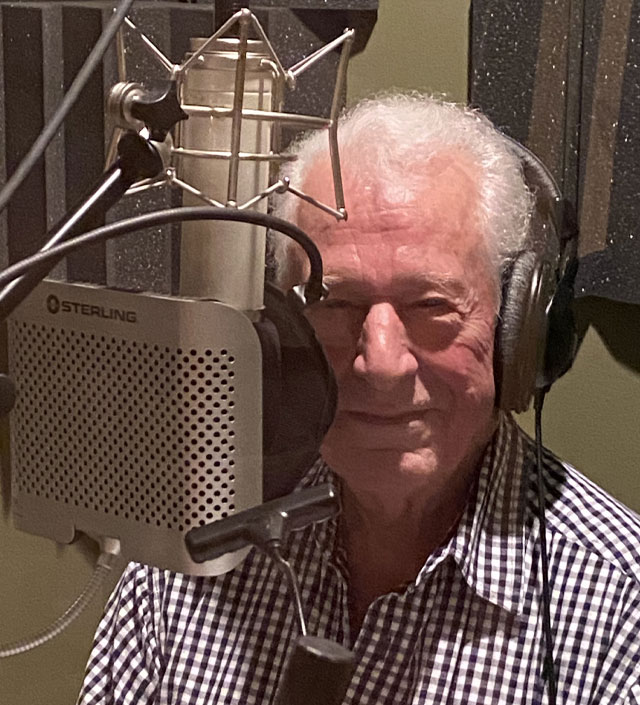Editor’s note: Dave Buck is a longtime columnist for Rethinking65. Read more of his articles here.

Our politicians in Washington are old. More than 50% of senators are over the age of 65, and 16 are over 75. Around 20% of House members are over 70, and 36 out of the 436 have passed the 75-year mark. In addition, President Joe Biden is in his 80s, and former President (and candidate again) Donald Trump would be in his 80s in office, should he be reelected.
I am certainly not a proponent of practicing ageism. The Constitution sets minimum age limits of 30 for the Senate and 25 for the House of Representatives, but I oppose setting a mandatory retirement age for any politician who chooses to serve. What annoys me is that many of these elder statesmen holding onto office fail to pass on their knowledge to younger generations.
For long-serving politicians, retiring means stepping away from a life that gives them meaning and purpose. Many elderly members hang on because they are passionate about issues they have dedicated their careers to, such as healthcare, the environment or foreign policy. Some believe they are the only ones who can do the job.
While bipartisan congressional resolutions have recognized National Mentoring Month, there is little evidence that elected officials have pursued this goal with formal mentoring programs of their own.
I attended a political dinner and sat at the table of a first-time candidate for a state house of representatives. I asked him what advice he gets from other elected officials. “None,” he responded. “You are basically on your own. It all takes money. Whether I donate to another politician or hire political consultants, advice does not come free.”
There are certainly examples of mentorship within the ranks of Congress. The late Sen. Joe Lieberman (D-Conn.) was known to counsel politicians of both parties. Rep. Chip Roy, (R-Texas) was mentored by Sen. Ted Cruz (R-Texas) and worked as Cruz’s chief of staff before running for Congress himself. Rep. Steny Hoyer (D-Md.) has mentored many younger congressional Democrats. But these seem to be the exception, not the rule.
Failure to transfer expertise while hanging onto a position indicates a lack of lifestyle planning outside of work. As an advisor, you probably have clients like this. They hold onto their career because they don’t know anything else. They aren’t thinking about passing their knowledge to younger colleagues who would benefit from their expertise. It doesn’t have to be an either/or choice. Help your older clients understand it can be both/and. They can continue to contribute to a job (or not) and transfer their know-how.
Come to think about it, what about you? The average age of financial advisors is 56, and close to 20% of you state you are five years or less away from retirement. Think about your situation and what you can do to convey your own wealth of knowledge.
Document the Experience
I’ve worked with many accomplished business professionals who carry a vast trove of knowledge and experience in their heads. To leverage that wealth of information, such individuals should invest time to thoroughly document processes, standard operating procedures, best practices, lessons learned and other important knowledge. This documentation serves as an institutional memory that can be referenced even after they have left the organization. It is this philosophy that motivated me to write my book The Time-Optimized Life.
As a financial professional, have you started a blog? It’s a great way to share your expertise with younger advisors and clients. Don’t make it clinical, make it personal.
Proactive Mentorship
I have had two mentors for decades who I still call upon when I need advice. The relationships developed organically. However, there is nothing stopping your clients from identifying and working with younger individuals, actively providing guidance and counsel not only in their career, but life in general.
Whether you are in a large firm or flying solo, offer your guidance on personal and professional development, such as networking, continuing education and maintaining a healthy work-life balance.
Collaborative Learning
I had a boss who did a wonderful job of pushing me to invest time in my personal development. One way he did this was to buy me a business book and say, “All right, let’s each read this and in a couple of weeks get together over lunch and talk about it.” He learned, I learned, we both benefited. That’s an inexpensive way for clients to impart their knowledge while still learning as well.
In your world, a great way to do this is through peer mentoring, where advisors with different levels of experience work together to share knowledge and best practices.
Draw Them In
The owner of the company I worked for believed he was a great teacher. In reality, he was a lecturer. He loved to hold court and share stories with his audience to prove a point. It was not these sessions, but when he involved people directly in an active project, that his guidance was meaningful and beneficial.
Your clients can make a big difference in the lives of their co-workers and subordinates if they draw them into their world. The same can be said for you and younger advisors.
Reverse Mentorship
While your clients have deep experience, the younger people they associate with often have a higher level of cutting-edge technical knowledge. Near-retirees can stay relevant at work — and prepare themselves for their post-career life — through reverse mentoring. Your client seeks out Gen Z and millennial members for tech upskilling, allowing for a mutually beneficial two-way exchange of knowledge. The same principle can apply to you and younger financial professionals.
Prolonged life expectancy may keep our politicians and your customers in their jobs longer. It may keep you working longer than you think as well. That will have an impact on your financial strategies. By planting the seed for a transfer of knowledge, you can help your clients find career peace sooner. Knowing they have made an impact may help them bring clarity and flexibility to their retirement life. The same can also be said for you.
Our politicians? I hate to say it, but term limits may be the only way to get them to change.
David Buck is the author of the book “The Time-Optimized Life,” owner of Kairos Management Solutions, LLC, and founder of the Infinity Lifestyle Design program. As a certified professional retirement coach (CPRC), David works with financial services providers helping their clients create a post-career lifestyle strategy. To learn more, contact him at dave@kmstime.com or visit Infinity Lifestyle Design.







